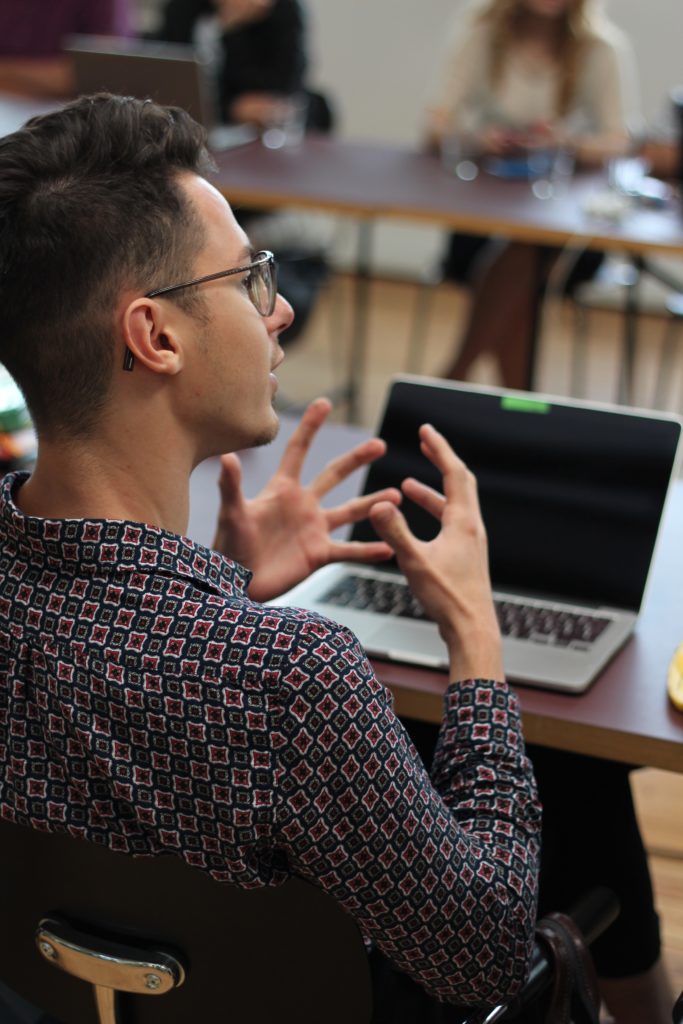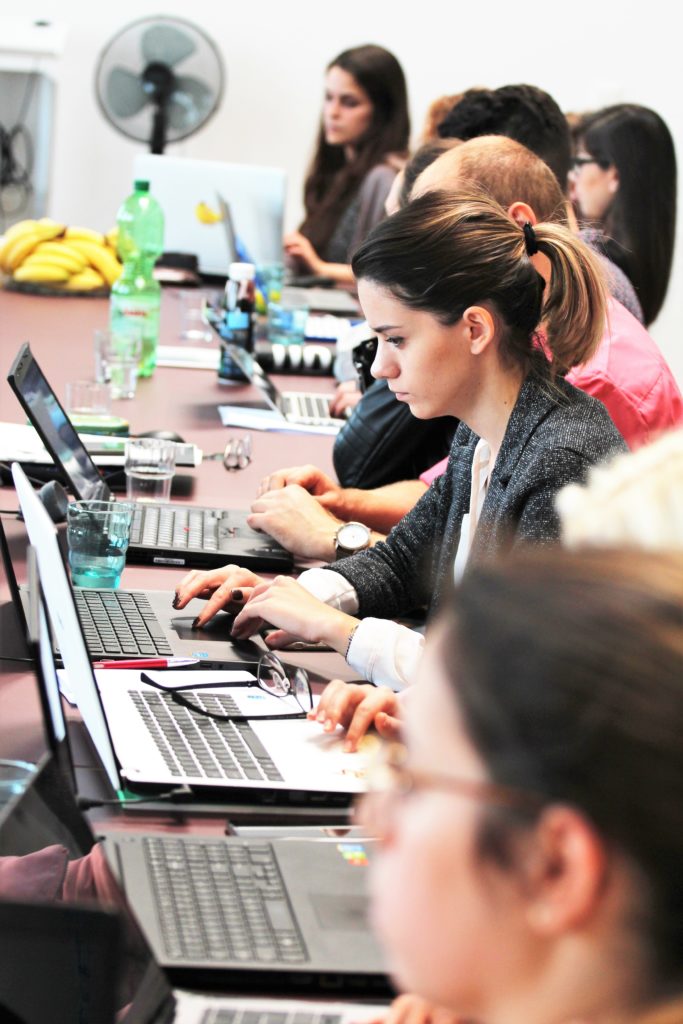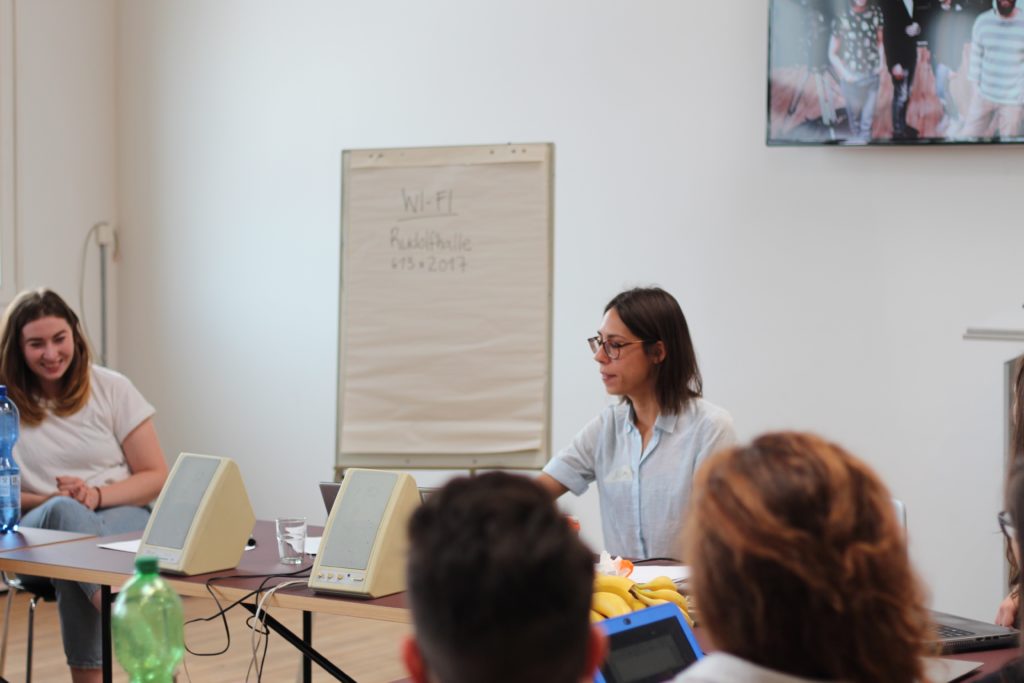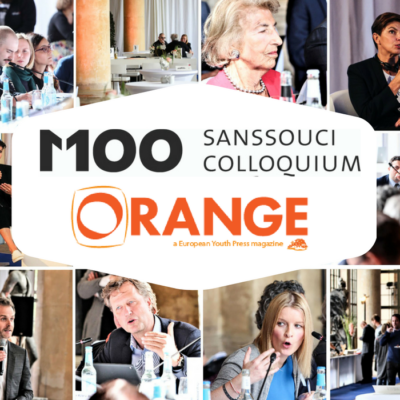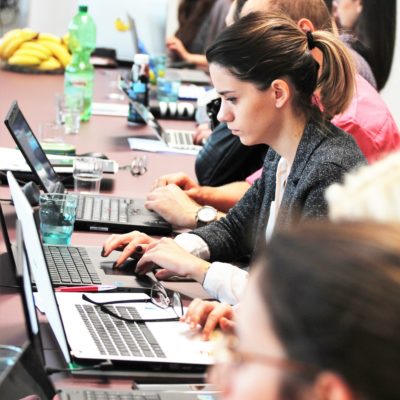By Mariell Raisma
German Public Broadcasting system in the mid-80s became open for the private market because of westernisation of Germany and more modern types of media production. Alex Berlin is part of a group called Open Access Channels, which were formed in the mid-80s as a response to the privatisation of the market. Julia Brötz from Alex Berlin tells more.
“In Germany, there is a quite special media system that was created after WWII when there was great effort to democratise and federalise Germany, including the media,” Brötz says. The first station and TV broadcast began in 1945, and since then it is quite developed.
A system that is funded by people, and for people
The Allied forces – the French, the British, the Americans – brought their public broadcasting systems to Germany, Brötz explains. So the German public broadcasting system or the media system, in general, is modelled after the BBC.
German media system with TV and Radio is quite big and structured system with a lot of regional stations and programs that are countrywide, Brötz says. There is public and private broadcasting system, but, according to her, the print market is handled separately in the media system. “There is no public print media, only private outlets.”
Ske explains that a private broadcasting system is only allowed to exist in Germany because there is such a strong public broadcasting system that is accessible to everyone at no or very low cost where information is presented neutrally, checked and balanced, where all types of audiences with different nationalities and interests are represented in and can access to media system. Public broadcasting system covers a lot of different organisations, stations and channels on TV, Radio and Online.
“That is so important that it is mentioned in the German Constitution that we have this public broadcasting system and Alex Berlin is part of this system,” she says.
To give all citizens access to public broadcasting channels, every household needs to pay about 18 euros per month, regardless of whether they watch the programme or not. “This is part of accessibility and democratic aspect of it. The amount is monitored, and the process is transparent, and it is not for profit. It is there to make sure that it does not get funding from the state or any kind of institution or organisation. It is a system that is funded by people, and it is for the people.”
Germans trust public broadcasting
The information formats – like news programmes, information talk shows where they discuss current politics, documentaries – as well as entertainment blockbusters, have an incredibly large market share, she says. So, according to her, the public broadcasting system is something that is very much accepted as high-quality media whether it be informational or entertainment.
DW is part of public broadcasting, which produces content about what is going on in Germany for people who are living abroad. The audience is expats, the people abroad whom to either come from Germany or who want to keep up with German politics, culture and society. For locals, there is an ARD, ZDF, SWR, etc.
Alex Berlin brings media to every citizen
ALEX Berlin is part of the public broadcasting system which covers a lot of different organisations, stations and channels on TV, Radio and Online. Alex Berlin is part of a group called Open Access Channels, which were formed in the mid-80s when the market opened, and private media outlets were allowed to produce for the German market and at the same time a lot of people where a kind of afraid that the whole media system is going to become commercialised and driven by profit. Also, it gives a platform to produce learn about media for every citizen. German citizens created a movement of open access channels in the mid-80s as a response to the privatisation of the market.
In every federal state has their own open access channel that is regulated by a media institute by the federal state. They all look different, but they all have the same goal – to give access to every citizen to take part in public discussion and democracy by using the media. They can learn how to produce their own content and learn more about media. They can broadcast their own content.
The content is mostly in German. In TV there is also foreign content which always has German subtitles. Berlin is very multicultural, so there are as many foreign language speakers in Berlin as there are Germans and for us, it is essential to give them a voice because these are the voices which are not heard in mainstream media.
Additionally, Alex Berlin offers traineeships at the Media Institute Berlin-Brandenburg at ALEX Berlin. For example, the 18-month integration traineeship programme trains up-and-coming talents with experience of displacement to become cross-media journalists and cooperates with partners from the media (n-tv, rbb, Der Tagesspiegel, taz) and integration sectors (Neue Deutsche Medienmacher, Reporters without Borders).
“Alex Berlin is so popular that we sometimes do have to turn away people or tell them to come back in a month when we have proper time to train,” she says. There is also a possibility to send a finalised file. “Thousands of people from students to people who have been living for 80 years in Berlin, come to Alex Berlin and produce very different content. It is a different experience for a person to get published in a giant TV station with professional equipment, editing and software.”
Photos by Aleksandra Koroteeva


